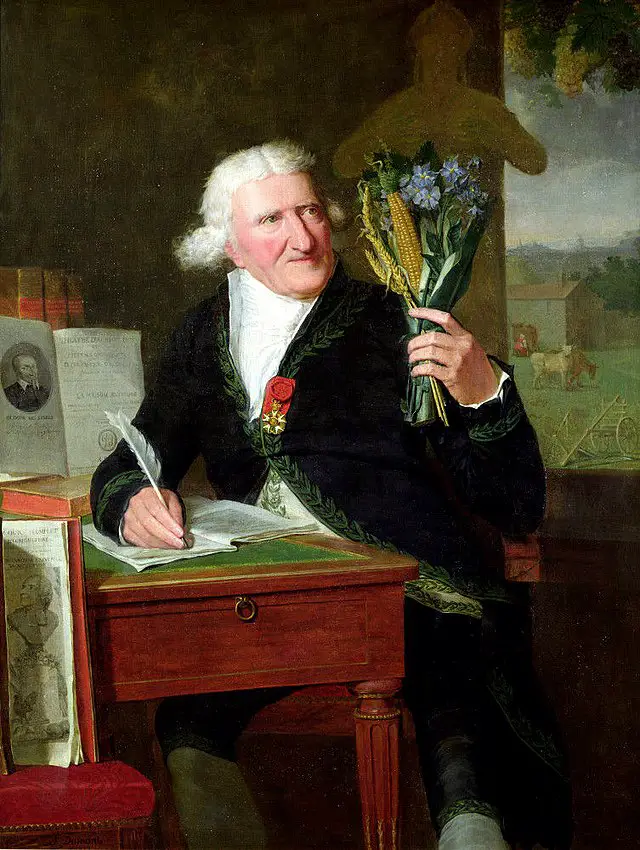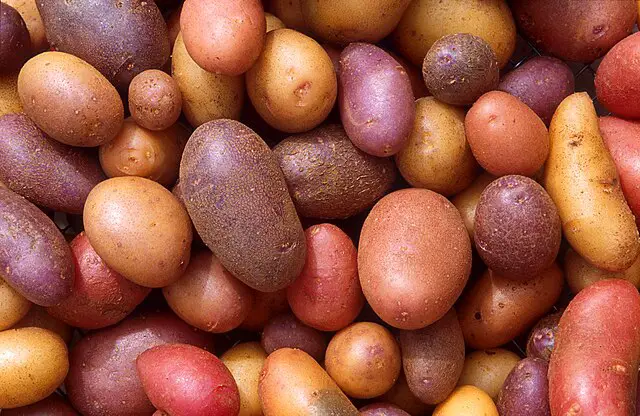Imagine it: You’re living in 18th-century France, and famine is a real threat. Bread is scarce, food prices are rising, and your stomach is as empty as your hopes. But then, one man arrives on the scene, not with a sack of wheat or a miracle crop, but with… potatoes. Yes, potatoes. The humble tuber that would go on to change history and save countless lives.
Antoine-Augustin Parmentier didn’t just introduce potatoes to France; he turned them into a national symbol of survival. But how? And why was something so simple, so often dismissed as animal feed, capable of shifting the entire course of a country’s fate?
Let’s dive into the potato revolution.
From Prisoner to Potato Pioneer
It all starts with a guy who, frankly, wasn’t anyone’s idea of a hero. Parmentier was a French pharmacist who spent time as a prisoner of war in Prussia during the Seven Years’ War (1756–1763). Now, being stuck in a foreign prison camp is bad enough. But what made it worse for Parmentier was the food. As a prisoner, he ate what was given to him, and that, in this case, was potatoes.
Strangely, despite his initial disdain for the tuber, Parmentier began to notice something: the Prussian soldiers were healthy. In fact, they were thriving on the very food Parmentier had initially scoffed at. These soldiers were strong, their skin looked better, and their overall health was surprisingly good. Potatoes. It was all about the potatoes.
So, during those long months behind bars, Parmentier’s perspective shifted. He didn’t just eat the potatoes; he studied them. How could this common, unappreciated root vegetable hold the key to survival, even in such harsh conditions?

The Battle to Get Potatoes on French Plates
Returning to France after the war, Parmentier was determined to share his newfound knowledge. The problem? Potatoes had a terrible reputation. They were commonly believed to be poisonous, and the French viewed them with suspicion. Most people associated potatoes with poverty, pests, or worse, “famine food.” So, how do you get a nation of food snobs to embrace something so… humble?
You start with a little creative genius.
The Great Potato PR Campaign
Parmentier wasn’t the kind of guy to back down from a challenge. If you want to change the world, sometimes you have to play the long game and Parmentier was a master of the long game. His first move? He took to social media… Okay, not social media (because it was 18th-century France), but he knew how to work the crowd.
In 1774, Parmentier convinced the French king, Louis XVI, to stage a public event: he had the king plant a patch of potatoes in Paris. That alone was a start, if the king was planting them, surely they couldn’t be dangerous, right?
But that was only the beginning. Parmentier didn’t stop there. He organized a clever series of publicity stunts to make potatoes appear desirable. One of his most brilliant moves was to have a patch of potatoes surrounded by a guard of soldiers, making the crop seem valuable and exclusive. The public, curious by nature, began to wonder: What was so special about these guarded potatoes? Of course, they wanted to find out.
Potatoes on the Menu: How Parmentier Changed French Cuisine
Now, Parmentier had the attention of the public. But how do you take a suspicious tuber and turn it into a culinary staple? Parmentier turned to chefs.
He hosted elaborate dinners where he served potato-based dishes to French elites. Not just any dishes, no, he made them fancy. Mashed potatoes, potato salad, potato pastries, and even potato soup were served, all beautifully prepared and elegantly presented. The French aristocracy, who prided themselves on their exquisite taste, couldn’t resist trying this “new” ingredient that was suddenly everywhere.
But Parmentier’s genius didn’t just stop at the culinary world. He also promoted the idea that potatoes could be used to help alleviate the food shortages caused by crop failures. He showed that potatoes could yield more food per acre than wheat and were more resistant to diseases like blight. The timing couldn’t have been better, France was in the middle of a food crisis, and suddenly, the answer was in the ground.
Potato’s Rise to Glory (and Parmentier’s Legacy)
Thanks to Parmentier’s efforts, potatoes slowly but surely gained popularity. By the late 18th century, they were a common feature on French dinner tables. Potatoes weren’t just for the poor anymore; they became a symbol of French ingenuity and resilience.
In fact, Parmentier’s potato campaign was so successful that even today, he’s remembered as one of the reasons that the potato is now a staple food around the world. His tireless promotion of the humble vegetable paid off in ways he never could have imagined, France’s population grew, and their food security improved.
Even Napoleon Bonaparte got in on the action. He promoted the cultivation of potatoes as a way to feed his troops, particularly during the wars. Soon, potatoes were growing in fields across Europe and beyond, becoming a key part of global diets.
Potatoes in Modern Times: More Than Just a Side Dish
Flash forward to today, and it’s hard to imagine life without potatoes. Fries, chips, baked potatoes, mashed potatoes, the list is endless. It’s safe to say that without Parmentier’s push, the world’s love affair with potatoes may have taken a lot longer to ignite.
Parmentier’s campaign also serves as a powerful reminder: Sometimes, the simplest things can change the world. All it takes is a little creativity, determination, and belief in the power of an idea, even if that idea is just a potato.
Final Thoughts: A Tuber with a Legacy
So next time you sit down to a plate of fries or dig into some creamy mashed potatoes, think about Antoine-Augustin Parmentier. Think about how a man, armed with nothing but an idea and a little bit of luck, transformed a humble vegetable into a cornerstone of modern cuisine.
The potato may be simple, but it’s also a symbol of how small things can lead to big changes. And maybe, just maybe, there’s a lesson in that for all of us, if Parmentier could change the world with a potato, what’s stopping you from changing yours?
Sources:
1. BBC History: Antoine-Augustin Parmentier and the Potato Revolution
2. Smithsonian Magazine: Antoine-Augustin Parmentier: The Man Who Revolutionized the Potato
3. The Atlantic: The Man Who Saved France with Potatoes

